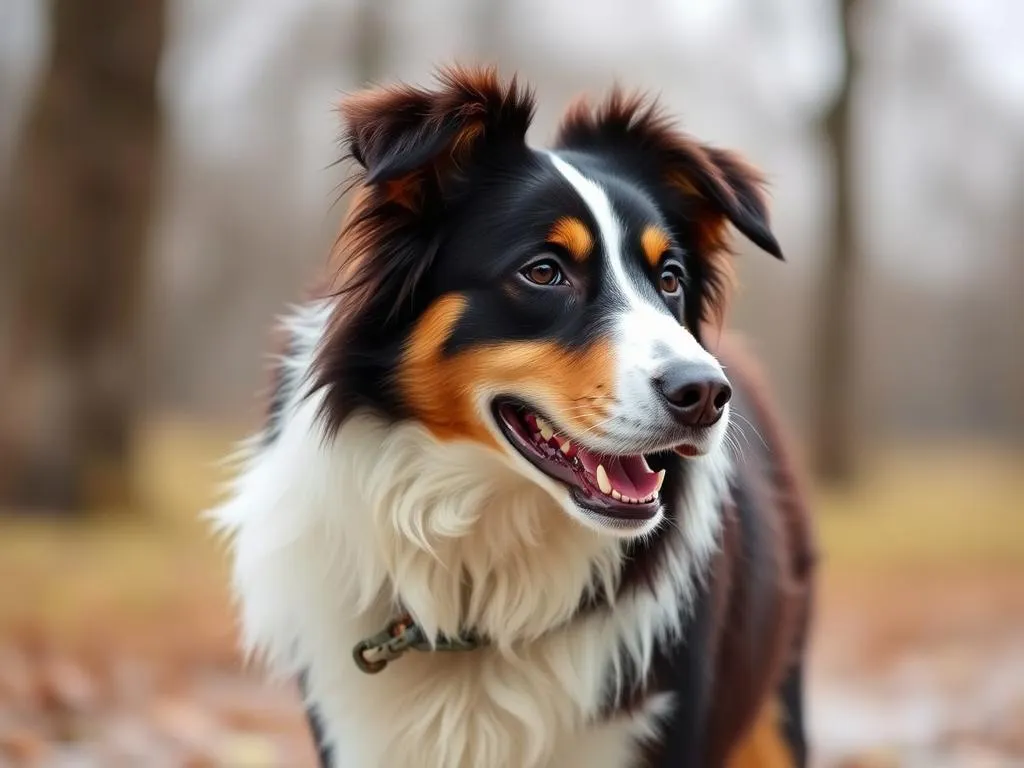
Introduction
Border Collies are renowned for their remarkable intelligence and herding abilities, making them one of the most admired dog breeds worldwide. Originating from the borderlands of England and Scotland, these dogs were bred primarily for herding sheep and cattle. Their agile, energetic nature and exceptional trainability have made them popular not only as working dogs but also as beloved companions.
However, when considering the question, will a Border Collie be a good guard dog, it’s essential to delve into their specific characteristics and behaviors to understand their suitability for this role. Guard dogs serve a critical purpose in protecting property and loved ones, and it’s crucial to recognize the unique traits of Border Collies in this context.
Overview of Border Collies
Border Collies are medium-sized dogs, typically weighing between 30 to 45 pounds. They feature a stunning double coat that comes in various colors, including black and white, blue, and merle patterns. Their expressive eyes and agile bodies are iconic, reflecting their herding heritage.
In terms of temperament, Border Collies are highly intelligent and energetic. They require significant physical and mental stimulation, thriving in environments that challenge their abilities. Socially, they are affectionate with their families but can be reserved with strangers.
Thesis Statement
This article will explore the capabilities and limitations of Border Collies in guarding roles, providing insights into their traits that may influence their effectiveness as guard dogs.
Understanding the Border Collie Breed
Physical Characteristics
Border Collies are medium-sized, athletic dogs, standing about 18 to 22 inches tall at the shoulder. Their weight varies, typically ranging from 30 to 45 pounds. They possess a remarkable agility that makes them excellent herders. The breed’s coat can be rough or smooth and comes in various colors, including black, blue, red, and merle. This diverse appearance adds to their appeal as companions but does not necessarily correlate with their guarding capabilities.
Temperament
One of the most notable traits of Border Collies is their intelligence. They are often considered one of the smartest dog breeds, excelling in obedience and problem-solving tasks. Their trainability is exceptional, making them suitable for various activities, including agility and obedience competitions.
Border Collies are also known for their high energy levels. They require ample exercise and mental stimulation, making them ideal for active families or individuals. Without enough physical activity, they may exhibit destructive behavior or anxiety.
Social Behavior
Border Collies are incredibly social animals. They form strong bonds with their families, displaying loyalty and affection. However, they can be cautious around strangers, which may contribute to their guarding instincts. Socialization from an early age is crucial to ensure they interact positively with other pets and people.
The Role of a Guard Dog
Definition and Purpose of a Guard Dog
A guard dog is specifically trained to protect property and individuals, often exhibiting protective behavior towards their owners. This differs from watchdogs, who primarily alert their owners to intruders. Effective guard dogs typically possess key traits such as fearlessness, loyalty, and a natural instinct to protect.
Common Breeds Used as Guard Dogs
Several breeds are commonly recognized for their guarding abilities, including:
- German Shepherd: Known for their intelligence and loyalty, they excel in protection work.
- Rottweiler: Strong and confident, Rottweilers are known for their protective nature.
- Doberman Pinscher: Highly alert and agile, they are effective deterrents against intruders.
- Bullmastiff: Known for their imposing size, they are natural protectors.
When comparing these breeds to Border Collies, it’s evident that while Border Collies have some protective instincts, they lack the natural aggressiveness often seen in traditional guard breeds.
Assessing Border Collies as Guard Dogs
Natural Instincts
Border Collies possess herding instincts that can translate into protective behaviors. They are naturally alert and vigilant, often noticing changes in their environment quickly. While they may not show aggression, they can be protective of their territory and family, barking to alert their owners of potential threats.
Training Potential
Training a Border Collie for guarding behavior is feasible due to their high intelligence and eagerness to please. They can learn commands and tasks quickly, making them responsive to training. However, it’s essential to utilize positive reinforcement methods and consistency.
Recommended training methods include:
- Basic obedience training: Ensuring your dog follows commands reliably.
- Socialization: Exposing them to various environments and people to reduce anxiety and enhance their protective instincts.
Socialization and Behavior
The impact of socialization on a Border Collie’s guarding instincts cannot be overstated. Proper socialization helps them differentiate between normal and threatening behaviors. A well-socialized Border Collie is more likely to remain calm and assess situations rather than react aggressively.
However, challenges may arise in aggressive behavior, especially if they feel threatened or overly protective. Owners must be vigilant to guide their Border Collies toward appropriate responses.
Pros and Cons of Having a Border Collie as a Guard Dog
Advantages
- High intelligence and trainability: Border Collies are eager learners, making them suitable candidates for training in guarding roles.
- Strong loyalty to owners: Their natural loyalty makes them protective companions.
- Alertness to changes in the environment: They are quick to notice unusual activities, acting as effective watchdogs.
Disadvantages
- Not naturally aggressive: Unlike traditional guard breeds, Border Collies typically do not exhibit aggression as a primary trait.
- High energy levels may lead to distractions: Their need for physical activity means they may become distracted from guarding duties.
- Need for extensive training and socialization: Effective guarding requires significant time and effort in training and socializing.
Alternatives to Border Collies for Guarding
Other Breeds to Consider
If you’re looking for a more traditional guard dog, consider breeds with stronger guarding instincts, such as:
- Belgian Malinois: Highly intelligent and protective, they are often used in police and military work.
- Boxer: Known for their protective nature and loyalty, Boxers are great family guard dogs.
- Akita: This breed is known for its strong protective instincts and loyalty to its family.
These breeds generally show more natural guarding behaviors compared to Border Collies.
Mixed Breed Options
Mixed breed dogs can also make excellent guard dogs, often benefiting from the traits of their parent breeds. When choosing a mixed breed for guarding, consider the following factors:
- Temperament: Assess the traits that may come from both breeds.
- Physical attributes: Ensure the dog has a robust build suitable for guarding.
Training a Border Collie for Guarding
Basic Training Guidelines
To train a Border Collie for guarding, start with basic obedience training. This foundation is crucial for establishing trust and communication. Recommended commands include:
- Sit
- Stay
- Come
- Leave it
These commands help manage your dog’s behavior in various situations.
Socialization Techniques
Socializing your Border Collie is key to ensuring they are comfortable in different environments. Introduce them to various people, animals, and settings, encouraging positive experiences. This exposure will help reduce anxiety and promote confidence in their guarding instincts.
Advanced Guard Training
Once your Border Collie has mastered basic commands and socialization, consider advanced training for guarding. Specialized programs can help refine their instincts and responses. If you’re unsure where to begin, consulting a professional trainer experienced in guarding dogs can provide valuable insights.
Conclusion
In summary, Border Collies possess unique traits that can be beneficial in guarding roles, including intelligence, loyalty, and alertness. However, their lack of natural aggression and high energy levels may limit their effectiveness as traditional guard dogs.
Ideal scenarios for keeping Border Collies as guard dogs include environments where their alertness can shine, complemented by proper training and socialization. Potential owners should weigh the pros and cons carefully, considering whether a Border Collie’s attributes align with their guarding needs.
FAQs
How do Border Collies compare to traditional guard dogs?
Border Collies are less aggressive than many traditional guard dog breeds, making them more suitable as watchdogs rather than frontline protectors. Their alertness and loyalty can still provide a level of security.
Can a Border Collie be trained to be aggressive?
While it is possible to train any dog to exhibit aggressive behaviors, it is not recommended. Border Collies are not naturally aggressive, and forcing them into such behavior can lead to behavioral issues.
What are the signs that my Border Collie is protective?
Signs of protectiveness may include barking at strangers, staying close to you during unfamiliar situations, and showing alertness to changes in their environment.
Are there any health or behavioral concerns to be aware of?
Border Collies can be prone to certain health issues, including hip dysplasia and eye conditions. Additionally, their high energy levels require regular exercise and mental stimulation to prevent behavioral problems.









